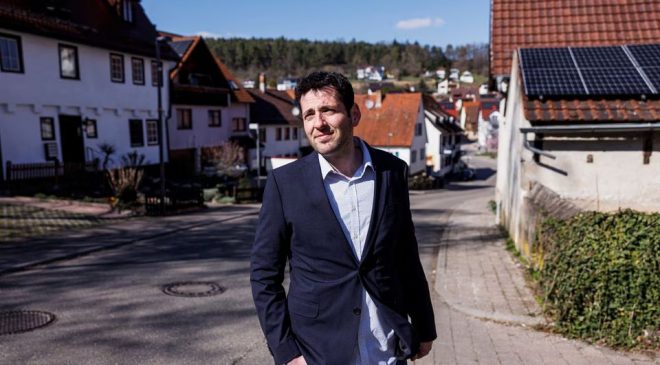
A Syrian who arrived in Germany as a refugee in 2015 has been elected as the mayor of a village in the south-west of the country. Ryyan Alshebl, 29, who is a member of the German Greens but stood as a non-party candidate, won an absolute majority in Sunday’s mayoral election in Ostelsheim, a small municipality of about 2,500 inhabitants in the state of Baden-Württemberg.
Alshebl, who came out top against two other independent candidates with 55.4% of the vote, described the result as “sensational” and said Ostelsheim had “set an example for broad-mindedness and cosmopolitanism for the whole of Germany”.
In his campaign, Alshebl had made digital access to public administration services in the region one of his priorities, drawing on his seven years’ experience of working in the town hall of the neighbouring municipality of Althengstett.
Born in 1994 in the town of As Suwayda in south-west Syria, he started a degree in finance and banking management but gave it up because of the outbreak of war, later completing a dual apprenticeship as an office administration clerk in Germany.
The son of a secondary school teacher and an agricultural engineer, Alshebl writes on his website that he grew up in a Druze household – a religious minority that evolved from Islam into a separate monotheistic faith, and which nowadays makes up about 3% of Syria’s population – but no longer practises any religion.
The new mayor of Ostelsheim is probably the first of the approximately 430,000 Syrian refugees who applied for asylum in Germany between 2015 and 2016 to be elected to higher office in the country. Overall, nearly 1.2 million applications for asylum were registered in Germany over that two-year period.
According to the migration research group Mediendienst Integration, only 1.2% of mayors of German cities had migrant backgrounds in May 2022, compared with 27% of Germany’s population as a whole.
The Social Democrat Mike Josef, who won a runoff vote last week to become the mayor of Frankfurt, was born in Qamishli, Syria, but has lived in Germany since the 1980s.
